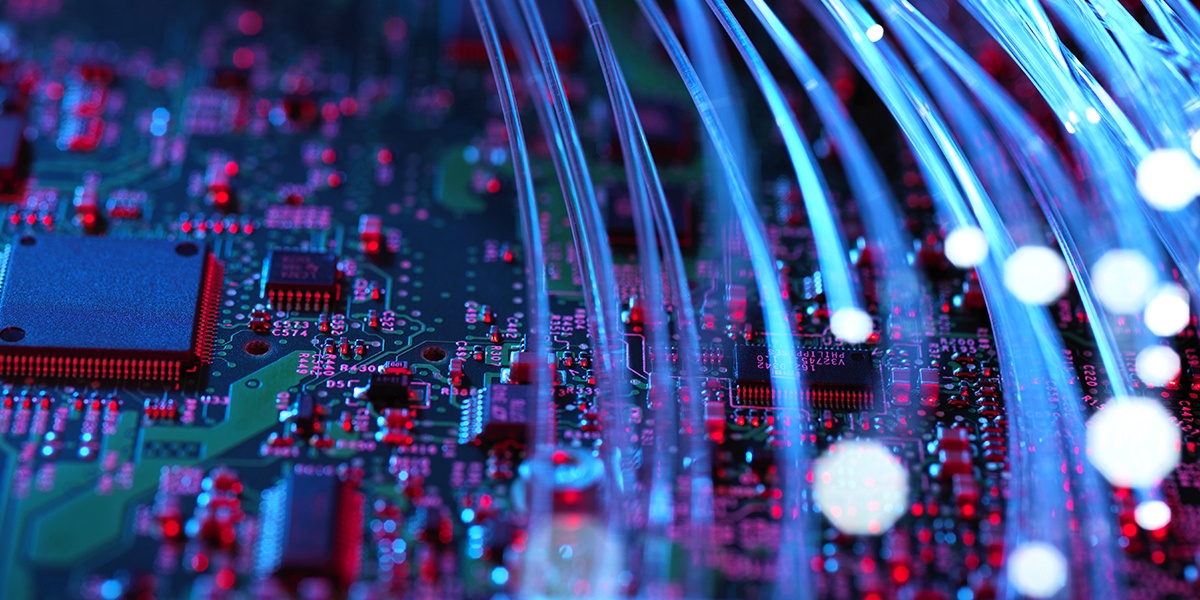

People
The scientific area in Electronics at DEIB counts 30 professors, supported by more than 100 Ph.D. students and post-doc researchers.
View moreResearch
Electronics research at DEIB has always been carried out through a balanced mix of theoretical analysis and experimental activities.
Today, the research activity is carried out in 1400 square meters of laboratories equipped with state-of-the-art tools to design, simulate, and characterize the electrical and optical properties of a broad range of nano- and opto-electronic devices, sensors, integrated circuits, and systems.
Devices and integrated circuits are fabricated either in the University’s clean room, PoliFab, or in collaboration with major semiconductor companies and research institutions.
The researchers are engaged in numerous national and international research projects:
Number of projects and contract (2024-25): 55
Funding (2024-25): 4,841,942.80 €
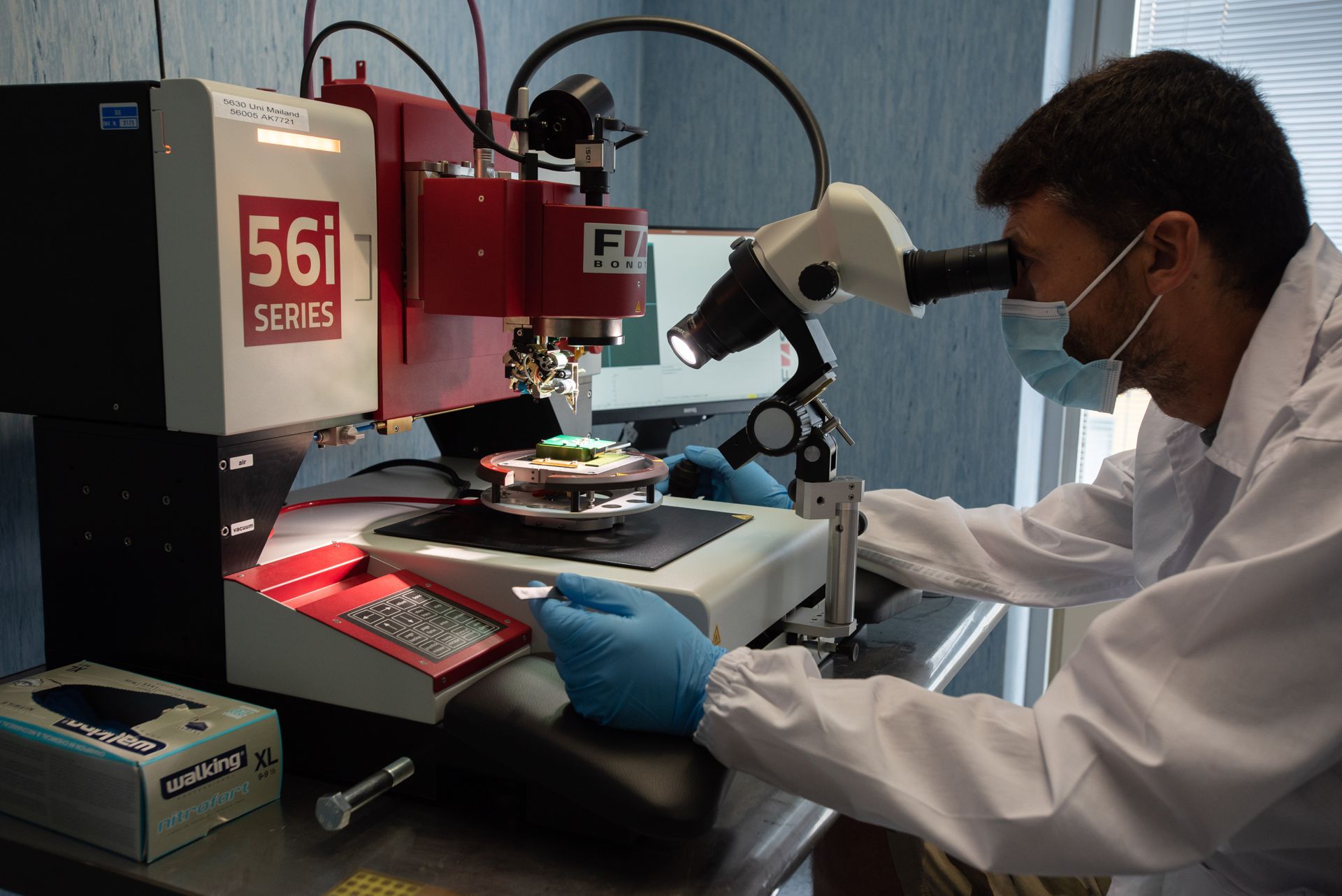
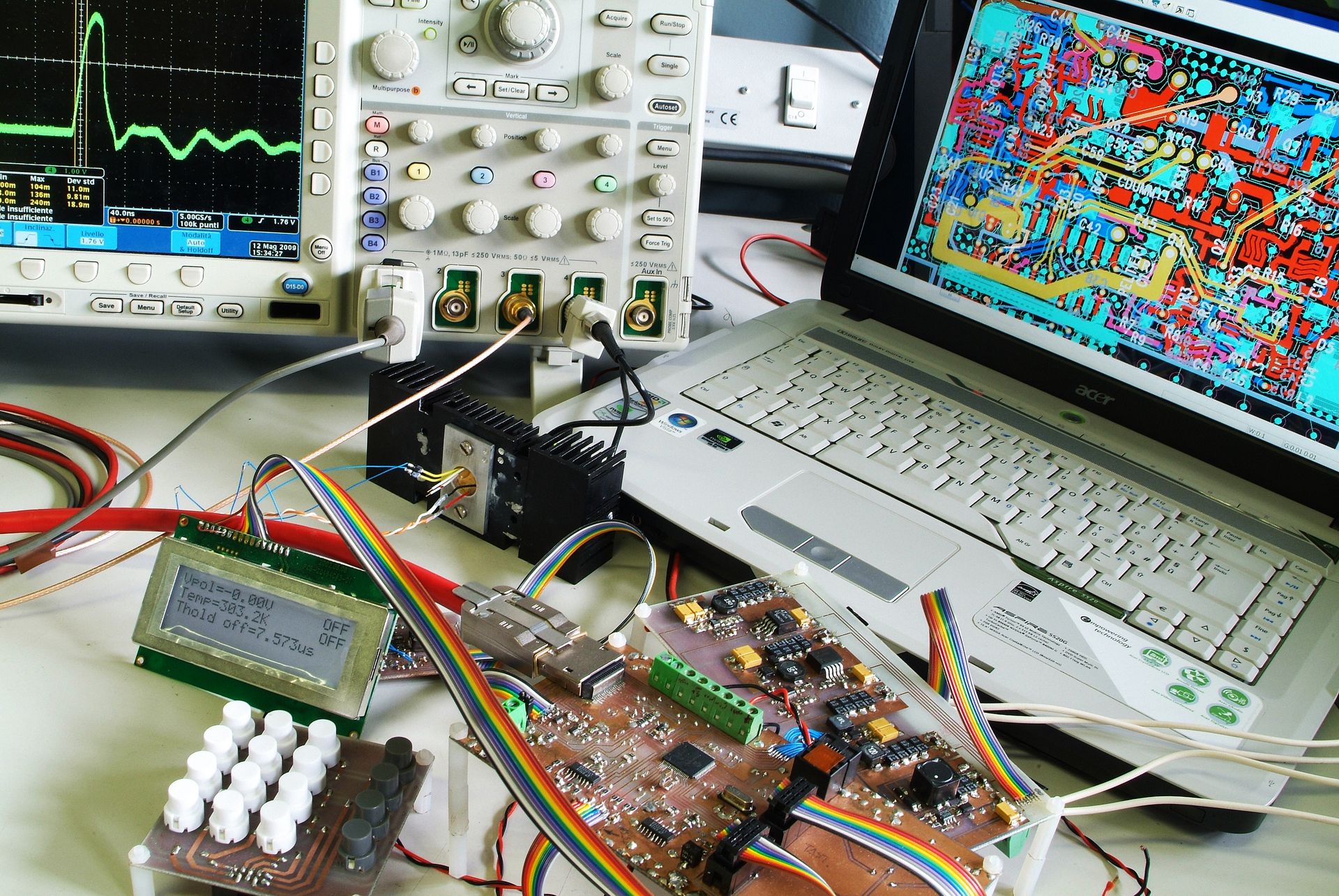
Education
The Electronic Engineering Degree Course prepares students to conceive, design, use and innovate electronic devices, circuits and products, integrating them into complex systems. Electronic Engineering graduates will guide the evolution of technology and innovation, with competence and professionalism.
The Research Doctorate (Ph.D.) further fosters and completes the knowledge in Electronics after the Master’s Degree. The Ph.D. program aims at training professionals capable to carry out and supervise high-level research activities in the most advanced fields of Electronics and of Information and Communication Technology (ICT).
Joint research platforms
The research area in Electronics boasts numerous collaborations with companies. Joint Research Centers (JRC) have been created with some of these. The Joint Research Platforms (JRP) is a medium/long-term strategic partnership on shared research, innovation and development issues.
This partnership is actualised through a multi-year scientific collaboration coordinated by a joint management committee.
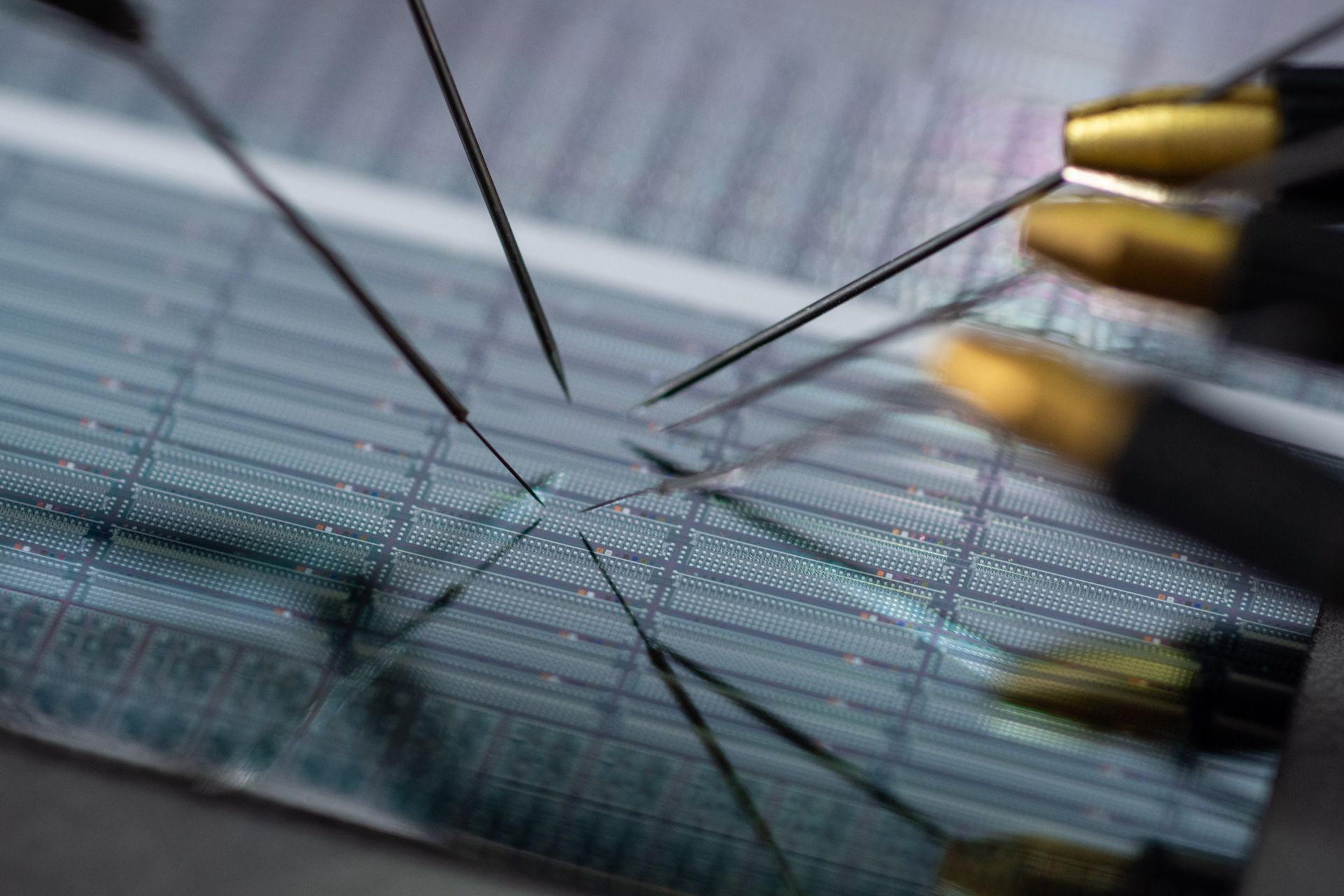
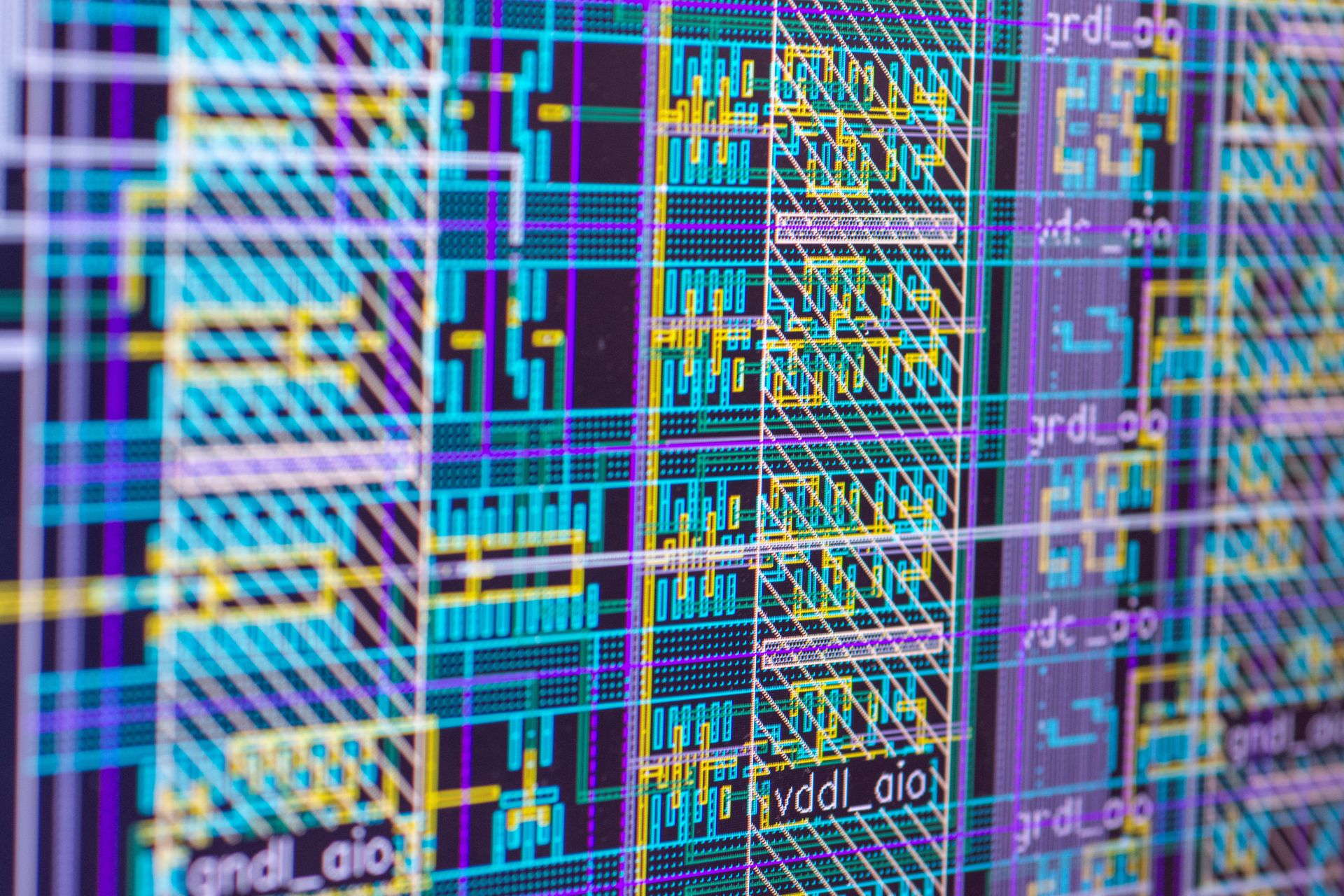
Spin-off
DEIB shares with the Politecnico di Milano a strong commitment to cooperating with the industry and with the society, and the effort to bring real world’s problems closer to the academic research. DEIB researchers engage both in long-term research activities and in applied research projects targeted to the immediate industrial exploitation.
The DEIB has been a driving force in the conception of the TTO and of the PoliHub and is the leading contributor in terms of delivered patents, spin-offs, and incubated companies, many of which were founded by professors of Electronics.
News
- Beyond the Limits of Semiconductors: TEMPO Revolutionizes Computing with Integrated Photonics
- Microelectronics and Photonics for Quality of Life: DEIB Research at the Italian Chamber of Deputies
- The 'smart' chip that reduces both consumption and computing time marks a breakthrough in high-performance computing
